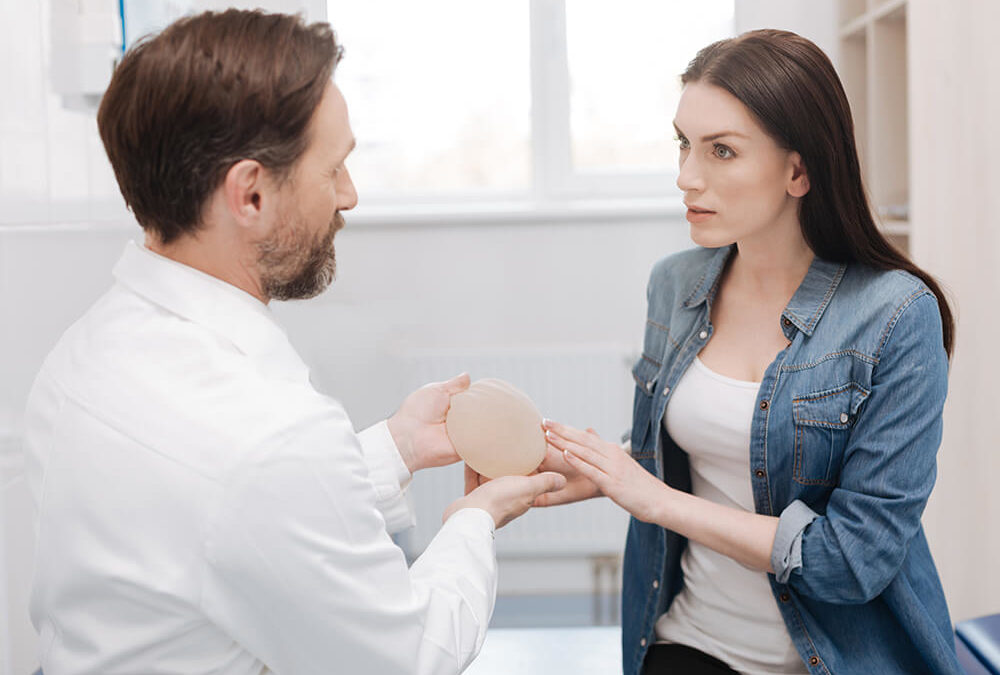From Connecticut to Colorado to California, one looming fear stands in the way for those who want breast augmentation surgery: what happens if they pop? This possibility is one which scares some people away from breast enhancement surgery with very little basis. Everyone has watched an episode of Botched or heard an online horror story which made them think that one wrong move can ruin implants, making them look horrible and endangering health. While implants can rupture and precautions should be taken to ensure this doesn’t happen, it is a far rarer occurrence and far less dangerous than most would think. This blog will explore what can cause an implant to pop and advice for what can happen should this unfortunate circumstance occur.
What Causes Popping?
The most common cause for a popped implant is capsular contracture. This is a complication in which scar tissue forms inside the capsule surgeons create for the implant and tightens around it. Due to the building pressure from the scar tissue on the implant, it may become hard or misshapen and, in some cases, rupture slightly. Surgeons take the utmost post-surgery care for their patients and watch for capsular contraction. They can perform repair surgery if necessary. The other major cause of rupture in implants is severe trauma which is less likely.
Car accidents or other sharp blows directly to the breast tissue may cause damage to the implant. Implants are more likely to rupture as they age as well. Fortunately for those who opt for saline implants, the solution inside the implant is non-toxic, but it will likely need to be replaced as the fluid releases into the body, deflating the implant. For those who opt for silicone implants, leaks are harder to detect due to the thickness of the liquid which will likely stay in the capsule where the implant sits. This makes replacement surgery very easy for cosmetic surgeons.

What do do Post-Pop
Only 15% of implants go through any type of damage which causes a rupture, and most of these are due to capsular contracture. However, most doctors agree that a leaking implant is not an emergency. Due to safety measures both in implant production and the augmentation surgery itself, those who have implants are highly unlikely to suffer from adverse health due to a ruptured implant.
Cosmetically, it may not be as appealing as it once was, so repair surgery is an option. Most implants come with a warranty (extended warranties may be purchased as well) which can often cover the cost of repair since most insurance companies will not. It is important to note that extended warranties may be a good idea regardless of a patient’s fear of implant rupture. Implants tend to wear out over time and may need replacement even if no physical damage has been done to the implant itself.
All in all, apprehension about the idea of rupture should not deter anyone looking to get augmentation surgery. Advanced medical procedures and products are in place throughout the United States to ensure the safety and longevity of beautiful and safe post-surgery breasts.

